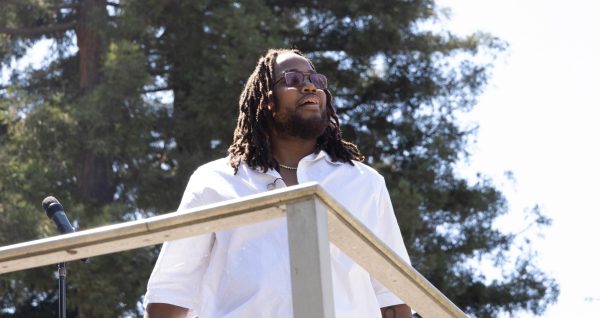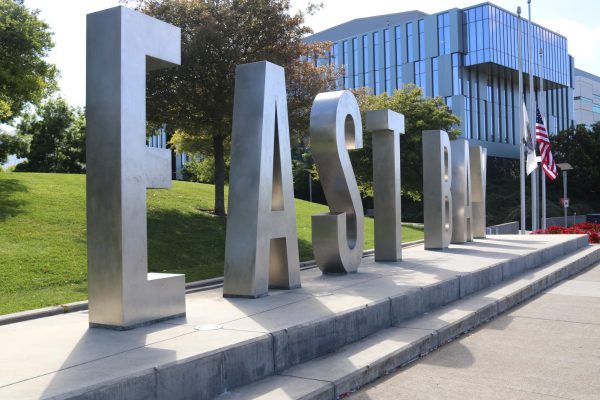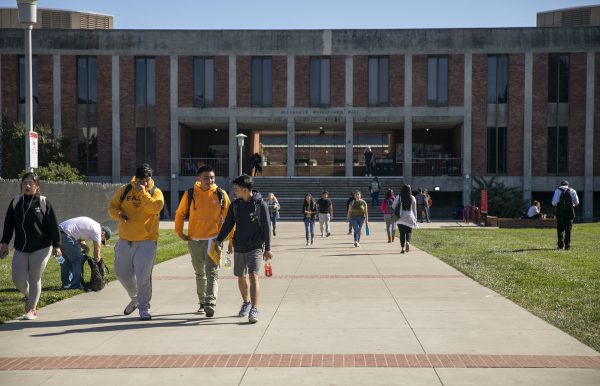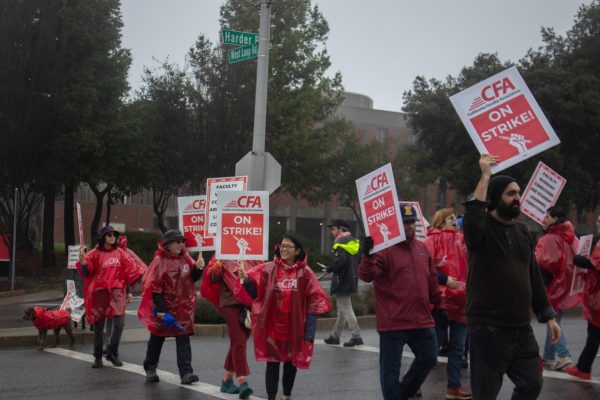A precarious education in America: East Bay senior reflects on life as an undocumented student
May 10, 2017
Cal State East Bay senior Alejandro Bautista studied abroad in Mexico City in the Fall of 2016, but Bautista, a Deferred Action for Childhood Arrivals (DACA) recipient, became fearful during his stay that he might not be able to return to the country when the Study Abroad program ended.
Bautista shouldn’t have been concerned about returning. He had an Advance Parole document that allows immigrants without permanent residency to travel out of the United States and re-enter the country if already approved for DACA, which he was. His DACA status legally enabled him to attend university and work without the threat of being deported.
But because of the anti-immigrant rhetoric that filled Donald Trump’s presidential campaign that Fall, the CSU recommended he and others of similar status return to the U.S. before Trump took office because the university could not guarantee their entrance back to the states.
Bautista ignored their recommendation and chose instead to stay in Mexico City through mid-December and finish his studies. In the routine security check entering the U.S., an officer, upon seeing Bautista’s DACA paperwork and his Advance Parole, said ‘he had it good’ because he was going ‘around the system.’ But despite seeing his paperwork, the officer still proceeded to question him on why he hadn’t fixed his status to a legal resident and when was he going to, but eventually let him through.
The DACA program, implemented by Barack Obama in 2012 has approved over 750,000 people, according to U.S. Citizenship and Immigration Services. Qualifications for DACA include being under the age of 31 before June 15, 2012, living in the U.S. before the age of 16, committing no felonies and must be a current or former student, according to the U.S. Citizenship and Immigration Services website.
However, during his first 100 days in office, Trump did much to negate Obama’s policies. He signed executive orders for the construction of a wall at the Mexico-US border, increased U.S. Immigration and Customs Enforcement, and threatened to strip sanctuary cities of federal aid.
In November of 2016, CSU Chancellor Timothy P. White issued a system-wide statement and promised the CSU would not comply with the enforcement of federal immigration laws, unless required by law.
A week later, CSU East Bay president Leroy M. Morishita reiterated White’s stance as it pertained to the CSUEB campus. In that same statement Morishita recommended for students and faculty to participate in training sessions hosted by UndocuAlly, campus program that provides resources for undocumented students such as contact information for immigration lawyers. Two weeks ago, CSUEB added UndocuAlly to the official university website as a resource for students. Previously a link for assembly bill 540 was the only thing available on the CSUEB website according to Cervantes.
They also include descriptions of AB540 and AB2000 — both of which exempt undocumented students from paying nonresident tuition fees if eligible — as well as information on the California Dream Act, which allows eligible students to receive state financial aid. The DACA program allows undocumented students to be legally employed only if certain requirements are met.
UndocuAlly is also a training program that equips students and faculty with tools to better support undocumented students, like contact information for affordable immigration lawyers, said GANAS program coordinator Melissa Cervantes, who is one of the trainers for UndocuAlly on the East Bay campus alongside Carolina Hernandez, EOP counselor.
Bautista has worked at Gaining Access ‘N Academic Success (GANAS) — a retention program aimed at Latino students and transfer students — since he transferred to CSUEB in Fall of 2015, and GANAS made him feel like he was part of a group or a club. Services like GANAS and UndocuAlly have made him feel welcomed and attached to the campus. “Melissa has really encouraged me to step out of my comfort zone and to speak my voice,” Bautista said.
Even though resources are available and Bautista has a good support system he still can’t help but worry for his family. The government now has his information as well as his family’s information, based on his DACA application.
“You know between right and wrong regardless but being a DACA student makes you more aware of it,” Bautista says. He would like to remind DACA students to “Get out there, it is a scary time but you’re not the only ones. We must build a sense of community within us.”
















